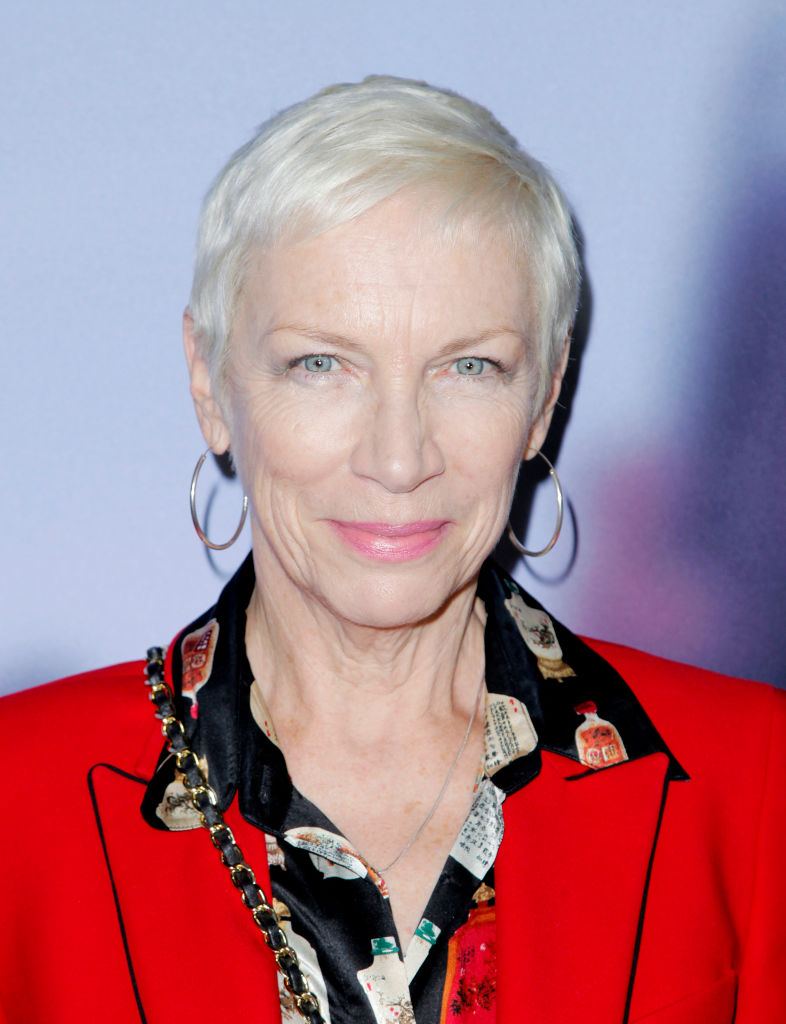
- Interviews
HFPA in Conversation: Annie Lennox’s Music Comes From the Heart
Singer, songwriter and activist Annie Lennox was nominated for the Best Original Song at this year’s Golden Globe Award. She wrote the song ‘Requiem for the film Private War’, a story that celebrates war correspondent Marie Colvin’s (played by Rosamund Pike in the biopic A Private War ) life. During the years of the duo Eurythmics Lennox touched our lives with songs like ‘Sweet Dreams (Are Made of This)’, ‘Who’s That Girl’, ‘Here Comes the Rain Again’, ‘Would I Lie to You’, ‘There Must Be an Angel (Playing with My Heart)’ and many others. After eight albums, the band had a hiatus and Lennox concentrated on her solo career and personal life. In 2003 she won the Golden Globe for the song ‘Into the West’ for The Lord of the Rings: Return of the King. Then life gave her other passions – one of them was to write a song for Marie Colvin.
“Songwriting has been a huge part of my life and I’ve lived through quite a few years now and been through quite a lot of different experiences. About 15 years ago when I first had this awakening about becoming an advocate and activist in terms of HIV and AIDS as it affects women and girls, my interests and my focus changed. It shifted away from music and music making into another world. It’s not so much that I’ve given up songwriting it’s more that I started to become far more fascinated and inspired by working in the interests of girls and women,” Lennox told HFPA journalist Katherine Tulich at the HFPA office in West Hollywood.
Opportunities to write songs came occasionally. “If somebody asks me if I would write a song, and occasionally they do for something specific such as a film like this, it would really just be by the grace of whatever whether I could come up with something.”
She met Marie Colvin a year before she was killed. “She came to an event that was held by the organization I founded called the Circle, which works to empower girls and women around the globe. Marie was really inspired and interested and keen and would have become a Circle member if things had not gone so horribly pear-shaped. When she was killed her friends that were already Circle members were thinking what would be the best way to commemorate her memory.”
They created the Marie Colvin Journalists’ Network. “That works with young war correspondents, female war correspondents in the Middle East to mentor them and support them and to give them protection.”
Lennox felt that it was a very appropriate thing to write a song for her. “I already had this connection to Marie Colvin. And when Marie was killed it was a shock for everyone. I think at that point I was quite affected by the fact that I had met her and knew her and that there was the Circle and she was interested and we had a circle for her already starting to happen. Somehow I just wanted to see whether I could write a song.”
She didn’t see the film before she wrote the song. “It was really so completely about Marie or for Marie, kind of a sense of circumstance in which she died. I had no guarantee that the song would come and when it did that seemed to be what it was. I sang it and played it to the director Matthew Heineman and to Scott Salinas who is the composer of the soundtrack. They were, that’s the song, that is the song. And I said well it doesn’t have to be because if it’s not working for you don’t worry about it. I think most people think you sort of just write a song to order, but it wasn’t like that, it came from a very intuitive place for me. And certainly, if I tried to write a song to fit into a film I think I would have found it a lot harder. This came from the heart.”
Listen to the podcast and hear how Nelson Mandela’s 70th birthday influenced her; when she began to sing and why she thinks daydreaming is important; what was she listening to when she was getting ready for school; what instruments she learned to play; how the Royal Academy of Music in London shaped her as a musician; why she compares the band The Tourists to Spinal Tap; why she remembers the Australian city of Wagga Wagga; how she describes her Eurythmics partner Dave Stewart and their work method; how she describes fame; why second best is not good enough for her on stage; why people didn’t want to mess with Annie Lennox; why her outfits were powerful; why she wrote the song ‘Sisters Are Doing it For Themselves’ in 1985; what is her take on the #MeToo and Time’s Up movements and why she thinks men and boys need to be included in the dialogue; why her first pregnancy gave her pain but made her aware of what many mothers are going through around the world; how motherhood revolutionized her life; why she likes the quiet life; what are her thoughts about aging; and how she finds hope.